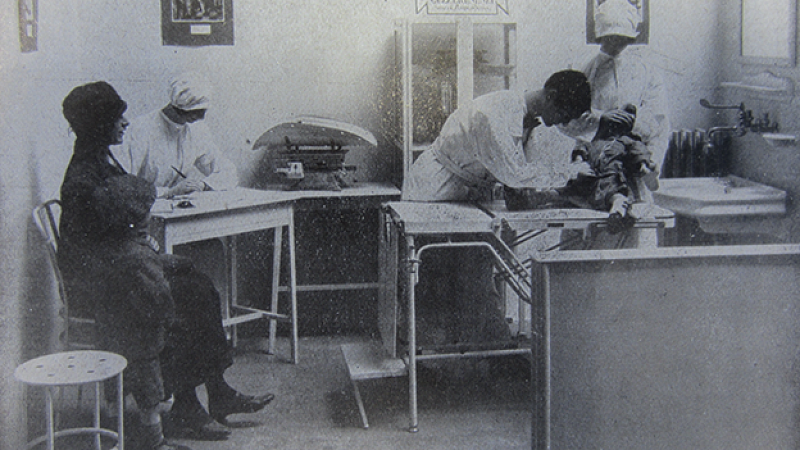When UO romance languages professor Diana Garvin decided to focus on the history of Italian fascism she didn't expect her work to become more relevant over time, but she's found herself applying her research to a growing number of current events.
An example is the days before the recent presidential election, when Garvin joined a group of scholars to issue a public warning about the ongoing threats to modern democracy that they've observed through the lens of the history of authoritarianism.
Their letter was the most recent collaborative effort of this coalition of academics, who banded together around the time of the "Unite the Right" rally in Charlottesville, Virginia. They founded The New Fascism Syllabus to provide academic resources about how the history of authoritarianism, fascism and right-wing populism can help people better understand current sociopolitical trends, as they realized not many of these resources existed but were increasingly needed.
Garvin's most recent book project, which examines the politics of reproductive health care under Italian fascism, has also become increasingly timely since she began working on it a decade ago, especially given the most recent changes to the United States Supreme Court, she said.
"In the United States, the political right has been immensely successful in its campaign to restrict women's access to reproductive health," Garvin said. "With the confirmation of Amy Coney Barrett, the Supreme Court sits on the verge of repealing Roe v. Wade."
"Feeding Fascism: The Politics of Women's Food Work" examines how women navigated the political challenges to both food production and sexual reproduction under Italy's fascist regime. And Garvin's research about how they resisted these challenges offers valuable insights into the growing threats to reproductive rights in the United States.
"Women's reproductive choices have historically acted, and currently continues to serve as a keystone, to connect and support multiple issues for the far right," Garvin explained. "Women's reproductive autonomy was a central concern for the Italian fascist regime, and there are lessons to be learned."
The historical backstory is that dictator Benito Mussolini's regime implemented a number of different measures that sought to control women's bodily autonomy, through both restrictions on access to reproductive health care and incentives for reproducing more often, with financial rewards given to women who birthed six or more children.
Mussolini's regime outlawed abortion and restricted women's access to birth control through a piece of legislation known as the Rocco Code. This law also targeted midwives as they were a primary source of information about contraception and the option for getting an abortion.
"Women's fertility became a public good that belonged to the state," Garvin explained.
Her new book examines how women resisted th assault on their rights through small acts of daily resistance. Garvin outlines how women turned to routine activities like cooking, eating and working to push for personal consent and to regain their political rights.
An example of resistance she highlights are the work songs of female rice weeders. Garvin said that the demands placed on those workers to both feed the nation and to populate it represented the state's desire to turn female bodies into a commodity that they controlled to advance Mussolini's agenda.
But women used their time in the rice fields to share stories about how much they struggled with the demands, and they began to create collective anthems about their desire for their personal rights to triumph over the state's ideology.
Garvin points to many other ways women began quietly banding together to push back against the political assault on their bodies. Many pregnant women stopped disclosing their pregnancy to employers in order to avoid certain work laws, such as those governing breastfeeding in the workplace.
Other women created a collection of recipes that concealed a body of folk medicine about reproductive health care and included information on contraception. These recipes were shared and distributed with other women to expand access to reproductive information.
And midwives would steal tools that were outlawed by the state in order to perform private abortions and deliveries.
Change certainly didn't happen overnight as a result of those small acts of resistance, Garvin said, but they did help pave the way for some important legacies for women to regain their reproductive rights in Italy.
By the 1970s, women were building alternatives to the government-run health clinics, where they could learn how to conduct self-exams, how to self-administer an abortion, how to use a speculum, how to detect common sexually transmitted diseases and how to treat them. Women were able to regain their physical autonomy and forge community as they both sought and provided reproductive health care.
"There is a power that exists in the small acts and decisions that we make every day," Garvin said in a recent interview with Oregon Public Broadcasting. It was one of the many conversations she's had about how her research offers insights into news that is dominating the headlines.
"History has demonstrated that nonviolent protest is extremely effective, and that was true, even in the darkest years of fascism" she said.







